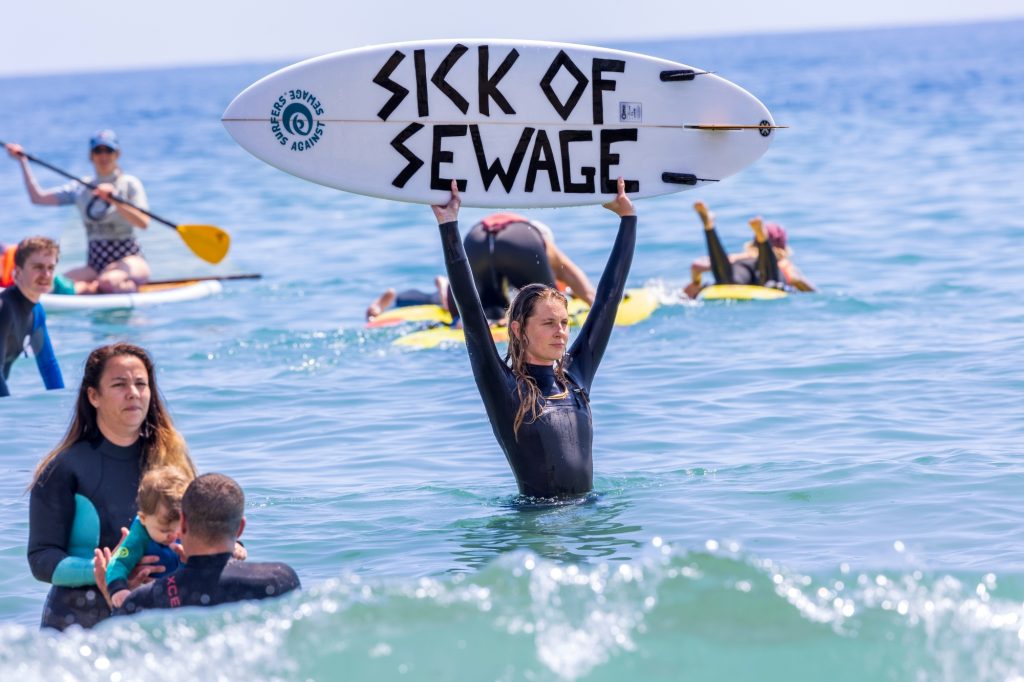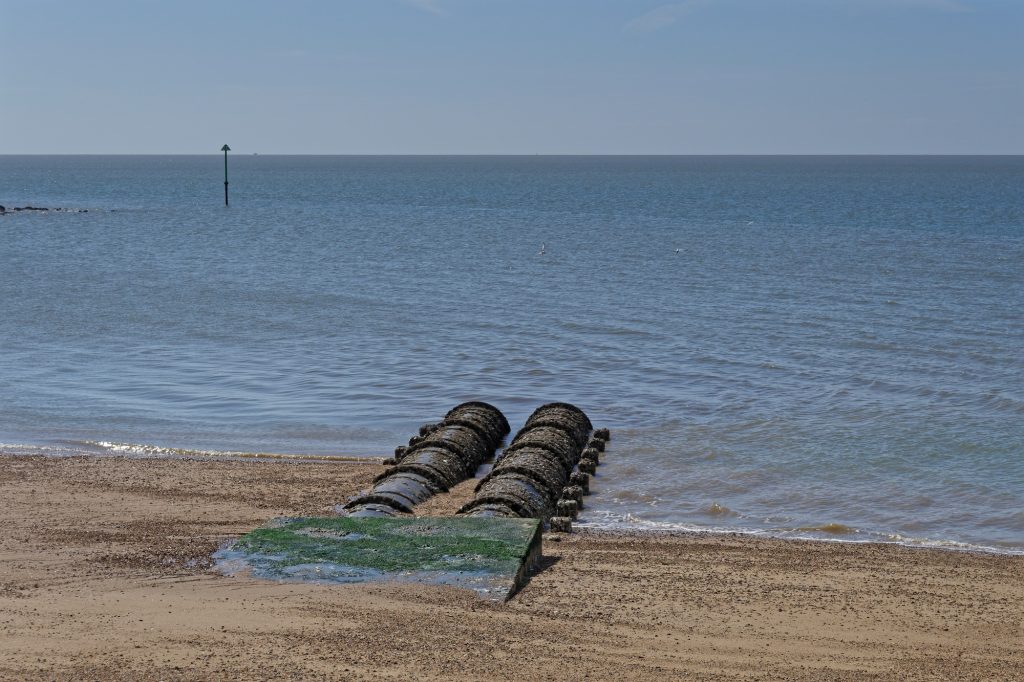Revelation of 54% increase in English sewage spills prompts widespread outrage

This post was originally published on this site

New Environment Agency data showing a significant increase in sewage spills in England during 2023 has been variously described as “unacceptable”, “squalid”, “outrageous” and “a shitshow”.
The Environment Agency’s newly published event duration monitoring (EDM) data for 2023 shows a 54% increase in the number of sewage spills in England compared to 2022.
Sewerage and drinking water supplies in England are delivered by 10 privatised water utilities, which are regulated by the government via Ofwat. The Environment Agency is responsible for enforcement action against pollution incidents.
Today, 100% of storm overflows are monitored by event duration monitoring (EDM) devices, compared with 7% coverage in 2010.
EDM data was returned from 14,318 storm overflows during the calendar year of 2023, up from 13,313 in 2022 and 12,092 in 2020.
The data also showed that the average number of spills per overflow was 33 compared to 23 in 2022 and 32.6 in 2020; a rise of 43%.
Additionally, 40% of storm overflows spilt less than 10 times in 2023 compared to 48% in 2022 and 40% in 2020, while 13.9% of storm overflows did not spill at all in 2023 compared to 18% in 2022 and 13% in 2020.
The government said in a statement “It is important to note that the increased installation of monitors over this period makes any direct comparisons of spill data over time very difficult.”
Earlier this month, the government announced that AI systems to manage storm loads, thousands of new in-sewer monitors, new staff and accelerated wetland construction programmes would receive investment over the next 12 months.
This followed the existing £3.1bn commitment from water companies to invest in storm overflow improvements for the current price review period (2020-2025).
2023 was named by the Met Office as the sixth wettest year since its records began in 1836.
The government went on to acknowledge that fluctuations in that weather “does not affect water companies’ responsibility to manage storm overflows in line with legal requirements”.
Despite the influence of the weather on the data, organisations across the sector, including the government itself, have branded the figures as “unacceptable”.
Reaction
Arcadis consultant Shah Nawaz Jelil said: “The Environment Agency has made significant progress in monitoring storm overflow spills, exemplified by the complete installation of EDMs across England’s water network.
“This provides invaluable data to track sewage spill frequency and impact, understand storm overflow dynamics, inform compliance and investigation work, and guide water company investments, enabling more targeted mitigation strategies.
“The UK Government’s commitment to combat sewage pollution through increased investment, inspections, and a whistleblowing portal is crucial for safeguarding waterways and ecosystems.”
Nawaz Jelil noted the 54% increase and said the spills were “influenced by weather conditions”.
“Despite this, the comprehensive monitoring and regulatory efforts represent a significant advancement in UK environmental protection, emphasising the need for continued collaboration,” he said.
HR Wallingford principal scientist Richard Body said: “The EDM data released today is an important tool for building the full picture of how our sewer network impacts the nation’s waterways and coasts.”
Body said that by combining the EDM data with modelling of spill mechanisms and water quality, “we can support even more communities”.
“This is important because modelling helps water companies prioritise their continued efforts to address storm overflows,” he added.
A Water UK spokesperson said: “These results are unacceptable and demonstrate exactly why we urgently need regulatory approval to upgrade our system so it can better cope with the weather.
“We have a plan to sort this out by tripling investment which will cut spills by 40% by 2030 – more than double the government’s target.”
The spokesperson called on Ofwat to give the privatised water sector approval for its plans so it can “get on with it” and said the government “should do its bit by delivering the 10 commitments it has previously made, which would eliminate tens of thousands of sewage spills.”
Good Law Project legal director Emma Dearnaley said: “While our rivers and seas were subjected to record-breaking and law-breaking deluges of sewage, water companies paid out £1.4bn in dividends.
“It’s a squalid situation – with the regulators either refusing or unable to act.
“Good Law Project has been holding the government and the water industry to account through the courts over their belated and inadequate plans to clean up this industrial-scale mess.
“At the rate we’re going, it’ll be decades before we see an end to the sewage scandal with blameless customers likely to foot a huge proportion of the bill.”
A Thames21 spokesperson said: “This is totally outrageous!
“Water companies have underinvested in their sewerage infrastructure for many years and need to swiftly modernise their networks to prevent unacceptable sewage spills.
“Along with other river stakeholders, they also need to invest in nature-based solutions such as rain gardens and boost partnerships with local authorities and communities to improve the health of rivers.”
The Wildlife Trusts water policy manager Ali Morse said: “2023 saw record spills with over 4M hours of discharges across England.
“This is clearly unacceptable. However, this was predictable given the particularly wet weather last year – and what’s important now is that we start to see a reduction in harmful spills thanks to water industry investment.
“£3.1bn was already being spent between 2020 and 2025, and a further £180M has been fast-tracked to be spent this year.
“This investment should focus on preventing the spills which are most environmentally damaging and on creating nature-based solutions such as wetlands to keep water out of the sewers in the first place.” Morse described these as “cost- and carbon-efficient ways of preventing spills”.
She continued: “We know that bill rises are going to be challenging for many customers, so spending efficiently, and providing support for those who struggle to pay, need to be central to companies’ efforts to tackle spills.”
Surfers Against Sewage chief executive Giles Bristow said: “Another year, another total shitshow from the greedy, incompetent mess that is our water industry.
“With such large figures being thrown about it can be easy to become numb to the reality of the situation.
“But don’t fall for the spin – the deluge of shit pouring into our rivers and seas is a generational scandal where a broken system, fuelled by greed, is causing catastrophic harm to lives, livelihoods and the natural world.”
Bristow noted the 464,056 discharges of untreated sewage in 2023 in England and said “our spineless authorities must finally see the industry’s promises for the smokescreen that they are”.
He continued: “No more stern words from lecterns and slaps on the wrist; it’s time for punishments that directly impact the industry’s bottom line and the profiteering decisions being made at the top.
“Today’s shocking figures will only fuel our fire to make 2024 the year when the tide finally turns on the sewage scandal.
“A cresting wave of public anger, a general election and water companies setting out their investment plans make this year a now-or-never moment for the campaign to end sewage pollution, and we’re not going to let it pass.
“We’re calling everyone to join our national day of action on Saturday 18 May where surfers, swimmers, anglers, and water lovers of all stripes will stand up in protest against the sewage polluters.
“This wave of paddle-out protests across the UK will show those in power, in no uncertain terms, we’re sick of your shit and you must act to end the sewage scandal now.”
Pro-nationalisation campaign group We Own It director Cat Hobbs said: “The privatised water model has failed – investment went down by 15% after water was sold off.
“Shareholders have made a killing, getting £83bn in dividends – money that could have been reinvested into the infrastructure to stop leaks and sewage.
“And we the public are paying 20p in every pound to service an unsustainable £60bn plus debt mountain.
“Scottish Water, in public ownership, shows us that it needn’t be this way.
“They’ve invested 35% more than England, £72 extra per household per year.
“If England had invested at that rate an extra £28bn would have gone into the infrastructure.”
Hobbs called for English water companies to be brought back “into public ownership now using all the legal powers the government has. Otherwise we’ll be drowning in sewage and paying for the privilege for the next 35 years.”
Government comment
An Ofwat spokesperson said: “Today’s data is very disappointing and further evidence that wastewater companies’ performance on the environment is simply not good enough.
“We are acutely aware of the damage this does to our natural resources and to public trust. Companies must deliver a step change in environmental performance, and it is through this lens that we will be taking decisions for the 2025-30 price review.
“In addition to this, we have strengthened rules to allow us to take enforcement action against companies that pay dividends to shareholders where their environmental performance does not meet our expectations.
“We have also gained new powers which mean bonuses will no longer be funded by customers if companies’ obligations to the environment are not being met.
“Where companies fall short, we act – over recent years, we have imposed penalties and payments of over £300M and we currently have our biggest ever investigation underway with live investigations into six companies.”
Environment Agency director of water Helen Wakeham said: “Whilst it is disappointing that water companies have reported an increase in sewage spills in 2023, it is sadly not surprising.
“We are pleased to see record investment from the water sector, but we know it will take time for this to be reflected in spill data – it is a complex issue that won’t be solved overnight.
“No other country has the level of monitoring we do, with 100% of storm overflows in England now fitted with a monitor.
“We are better placed than ever before to hold water companies accountable – thanks to intelligence from our new whistleblower portal, our plans to expand our specialised workforce, new enforcement powers, increased water company inspections and new tools to inform our enforcement work.
Water minister Robbie Moore said: “I have been clear that sewage pollution in our waters is unacceptable, which is why in just the last few months we announced a consultation to ban water bosses’ bonuses when criminal breaches have occurred, quadrupled company inspections next year, fast-tracked £180m investment to cut spills, launched a whistleblowing portal for water company workers to report breaches, and will soon set out our plans to ban wet wipes containing plastic.
“We demanded that 100% of overflows were monitored by the end of last year as part of our drive to improve transparency.
“Today’s data shows water companies must go further and faster to tackle storm overflows and clean up our precious waterways.
“We will be ensuring the Environment Agency closely scrutinise these findings and take enforcement action where necessary.”
Like what you’ve read? To receive New Civil Engineer’s daily and weekly newsletters click here.




Responses